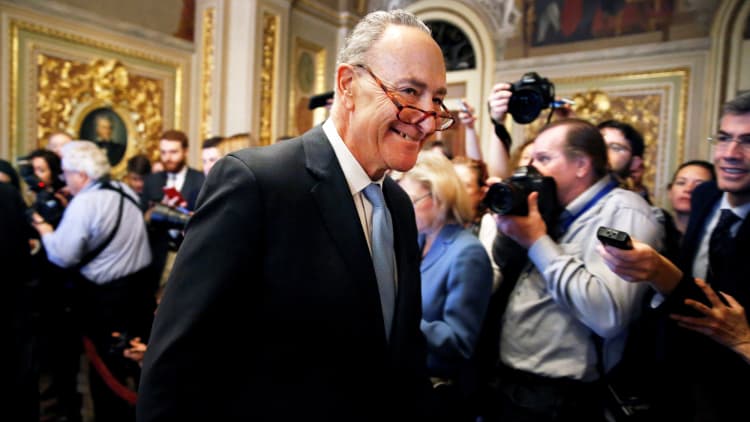
Patrick Conway, 62, didn't report for work on Monday because he's a "non-essential" worker.
Conway is the chief knowledge officer in the Department of the Army assigned to a four-star command. His job involves studying how knowledge is shared through teams within the armed forces. He doesn't consider his duties as non-essential.
"It's kind of a slap in the face," he said. "There are things not getting done and those things not getting done have a ripple effect."
Conway made it clear that these are his personal views. He is not speaking on behalf of the Department of the Army.
Conway is one of hundreds of thousands of federal workers who are collateral damage in the budget battle between Republicans and Democrats to get government operations going again.
There are things not getting done and those things not getting done have a ripple effect.Patrick Conwaychief knowledge officer in the Department of the Army
During government shutdowns, "essential" workers, including those dealing with public safety and national security, continue working. Conway, like other "non-essential" workers, has been told to stay home on furlough, or temporary unpaid leave.
At the top of his field, Conway makes more than $130,000 a year but is not prepared for an extended unpaid leave.
"It's not like people in the government are at the high end of the income ladder and always have huge savings that they can tap into," he said.
In addition, payments for health insurance, medical insurance and life insurance are automatically deducted from Conway's paycheck. "If you don't get paid, that cannot be paid," he said.
Non-essential employees, like Conway, who are furloughed get back pay as soon as lawmakers reach a budget deal.
But for them, Congress has to take an extra step to authorize it. That's something lawmakers have done in the past.
The last government shutdown in October 2013 lasted more than two weeks and more than 800,000 federal employees were furloughed.
More from Personal Finance:
If you're caring for family, your own retirement is in danger
Independent workers better beware of pay-as-you-go tax payments
How to ensure your financial plan can withstand the test of time


